Oral and maxillofacial surgery is the speciality of dentistry that focuses on the reconstructive surgery of the face, facial trauma surgery, the head, neck, oral cavity, mouth and jaws, as well as facial cosmetic surgery.
Many oral surgery procedures are common and treat conditions that many people experience, such as tooth loss, impacted wisdom teeth, or sleep apnea. Many of these procedures are completed in a few hours’ time and patients can resume work or normal activities within a few days.
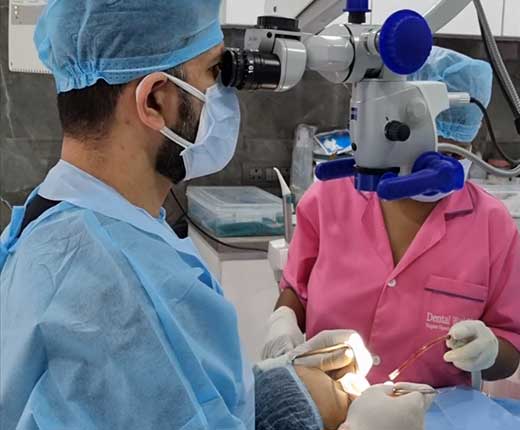
Oral and maxillofacial surgery is the speciality of dentistry that focusses on the reconstructive surgery of the face, facial trauma surgery, the head, neck, oral cavity, mouth and jaws, as well as facial cosmetic surgery.
Many oral surgery procedures are common and treat conditions that many people experience, such as tooth loss, impacted wisdom teeth, or sleep apnea. Many of these procedures are completed in a few hours’ time and patients can resume work or normal activities within a few days.
This happens when tooth decay reaches the centre of the tooth which i.e., the pulp, causing an infection. A root canal procedure (RCT) can help remove the infection. However, if the infection is severe and the tooth cannot be saved, an extraction will prevent the infection from spreading any further.
Periodontal disease also known as periodontitis is a serious gum infection caused by accumulation of bacteria on the teeth and gums over a long period of time. Periodontal disease can be easily prevented by regularly brushing your teeth in the correct way and routine visits to the dentist. Periodontal disease loosens the teeth; therefore, it is best to extract those teeth.
An impacted tooth is a tooth that is blocked from coming out through the gum line and grow in its position on its own, common in the case of wisdom teeth. Extraction of the impacted tooth is recommended by your dentist to prevent any damage to other teeth.
This is recommended when the patient has to undergo an orthodontic treatment and the orthodontist wants to create room for the teeth to move and realign.
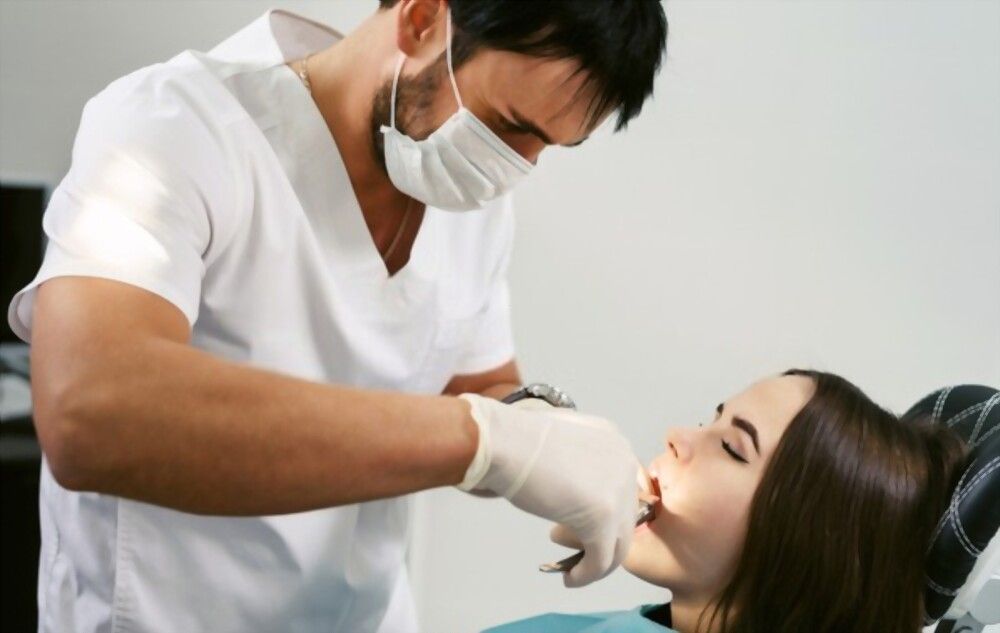
While it is advised to extract your wisdom teeth since they do not serve any significant purpose, you might need to extract any tooth for several reasons. For example, your dentist may recommend you to extract a tooth that cannot be saved through an RCT procedure.
Many people confuse pressure with pain. What you might be feeling is the pressure induced by rocking the tooth back and forth to loosen the tooth from the socket.
An extracted tooth must be replaced to avoid further dental complications. Replacing your missing teeth ensures your other teeth remain in their assigned position, your oral cavity is healthy and your face shape does not change dramatically.
Extractions do not cause loss of eyesight or hearing. Extractions are mere removal of infected teeth and tissues. If your oral surgeon knows of any complications that might occur in your case, you will be informed accordingly.
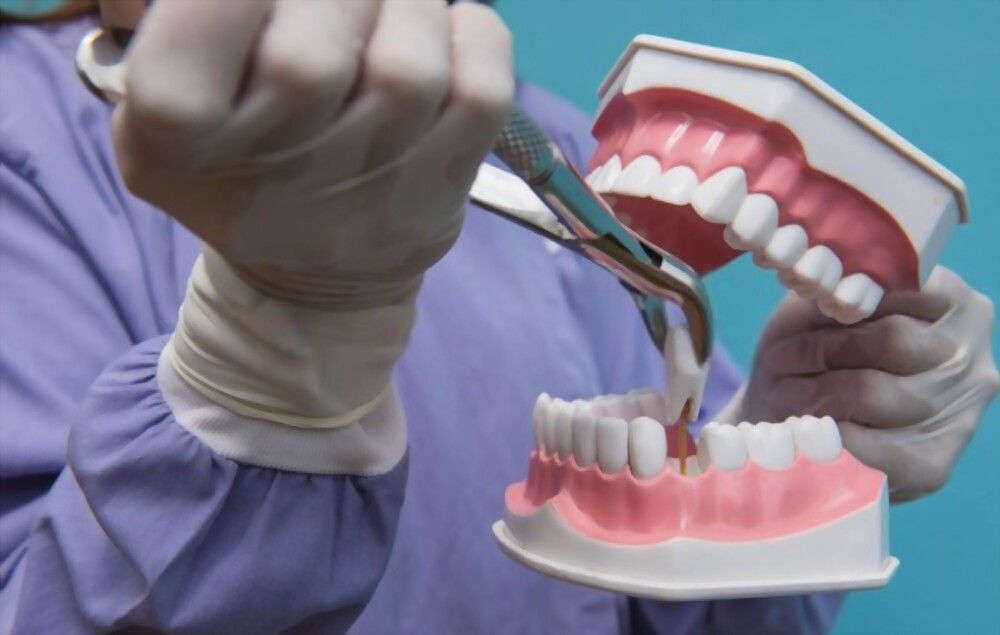
Wisdom teeth often known as third molars grow in people between the ages of 17 and 21. Instances of eruption in late adulthood are even common. There are 4 sets of wisdom teeth.
Impacted wisdom teeth i.e. when the teeth do not erupt completely through the gum line can cause several problems such as:
Wisdom teeth removal or extraction is advised since they do not serve any actual purpose in the mouth and it is better to avoid any future wisdom teeth infection.
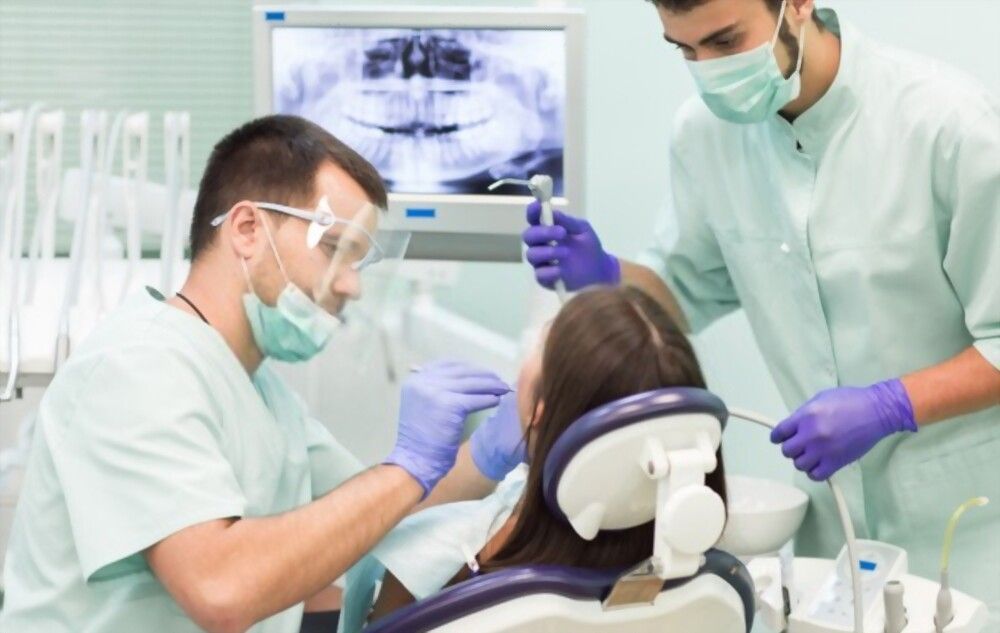
It is easy to extract wisdom tooth if it is fully erupted. However, if the tooth is impacted then it will require an incision in the gums. Usually, the tooth is extracted in parts to minimize the amount of bone required to be extracted for tooth removal.
It depends on how they have erupted and grown. In case of overcrowding and impaction, the wisdom teeth need to be removed. If they have grown without any hassle, then there is no need.
Yes, the dentist will put you on local anaesthesia before the wisdom tooth extraction.
Pain may last for at most a couple of days. You should take all the necessary precautions as suggested by the surgeon.
Mouth cancer or oral cancer can occur anywhere on the surface of the tongue, in the mouth, the lips, inside the cheek, gums, in the roof and floor of the mouth, the tonsils and the salivary glands.
Oral cancer symptoms include –
The oral cancer symptoms can sometimes be mistaken for a cold that will not go away or a persistent sore in the mouth.
Common oral cancer causes
It is important to note that oral cancer can also affect non-smokers and drinkers.
It is important to detect oral cancer in the early stages, since it can spread fast. Many dentists conduct the oral cancer examination and check for oral cancer symptoms during your regular dental check-up. He will carefully examine the roof and floor of your mouth, the entire tongue, gums and cheeks. In case the doctor finds any suspicious tumours or growth they will conduct a brush or tissue biopsy. Detecting the symptoms fast will lead to quicker oral cancer treatment.

Tongue-tie, also known as ankyloglossia, is a congenital condition (the child is born with it) in which a child’s tongue remains attached to the bottom (floor) of his or her mouth.
It is a condition that restricts the motion of the tongue. This happens when the lingual frenulum, a thin strip of tissue that connect the tongue and the floor of the mouth is shorter than usual. In normal conditions, the lingual frenulum will be pushed to the middle of the bottom of the tongue.
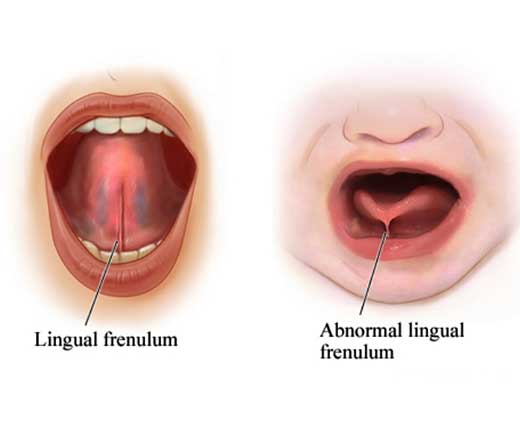
The condition often resolves itself. If not, it can be treated with surgery. A simple surgical procedure called a frenectomy can be done with or without anaesthesia by an oral & maxillofacial surgeon. Frenectomy can be achieved by routine scalpel technique, electro surgery or CO2 laser.
Dentists all over the world recommend that if your new born/child is truly tongue tied then the benefits of this simple surgery is justified and will provide life changing results.
There is no way you can prevent your infant from developing a tongue tie. Proper and early diagnoses and treatment will lead to successful recovery.
It takes the surgeon approximately 10-15 minutes to perform this surgery on infants. Laser frenectomy takes much time than traditional surgery and also the recovery period is lesser.
204, A.J.C. Bose Road, AJC Tower 4th floor, Kolkata – 700017
Ph : +9133 4000 1622 / 4007 5044
Centre for Implant & Aesthetic Dentistry : 204, A.J.C. Bose Road, AJC Towers,
2nd floor, Kolkata – 700017, Ph : +9133 2290 0185
Merlin Metrix, Plot No. 10, Block – DN, Sector – V, Salt Lake City
Ph : +9133 4061 2026